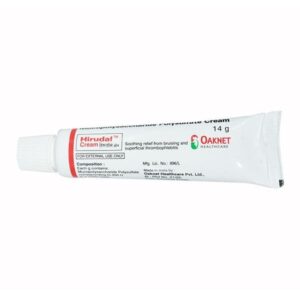MUCOPOLYSACCHARIDE POLYSULFATE{HEPARNOID}
MUCOPOLYSACCHARIDE POLYSULFATE{HEPARNOID}: MUCOPOLYSACCHARIDE POLYSULFATE, commonly known as HEPARNOID, is a medication used primarily for the treatment of osteoarthritis. It belongs to the class of drugs called glycosaminoglycan derivatives.
The exact mechanism of action of MUCOPOLYSACCHARIDE POLYSULFATE is not fully understood, but it is believed to work by providing lubrication and protection to the joints. It is thought to stimulate the production of natural lubricants in the synovial fluid, which helps reduce friction and facilitate smoother joint movement. Additionally, MUCOPOLYSACCHARIDE POLYSULFATE may have anti-inflammatory properties that can help reduce pain and inflammation associated with osteoarthritis.
MUCOPOLYSACCHARIDE POLYSULFATE is available in oral capsule or tablet form. The recommended dose may vary depending on the severity of the condition, but typically ranges from 100 to 200 mg per day. It is usually taken in divided doses, such as 50 mg three to four times daily. It is important to follow the instructions provided by the healthcare provider or the instructions on the medication label.
Common side effects of MUCOPOLYSACCHARIDE POLYSULFATE may include gastrointestinal symptoms such as nausea, vomiting, diarrhea, and stomach pain. Additionally, some people may experience allergic reactions such as rash, itching, and swelling. If any of these side effects occur or persist, it is important to consult a healthcare professional.
It is worth noting that MUCOPOLYSACCHARIDE POLYSULFATE may interact with other medications, so it is important to inform the healthcare provider about all other medications being taken. It is not recommended for use in pregnant or breastfeeding women without proper medical advice.
In conclusion, MUCOPOLYSACCHARIDE POLYSULFATE (HEPARNOID) is a medication used for the treatment of osteoarthritis. It works by providing lubrication and protection to the joints, potentially reducing friction and inflammation. The recommended dose varies but is typically taken in divided doses. Common side effects may include gastrointestinal symptoms and allergic reactions. It is important to consult a healthcare professional before starting this medication.



